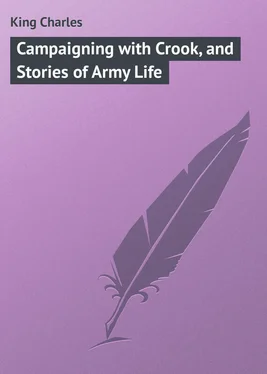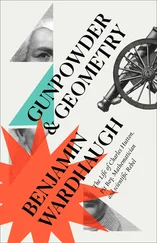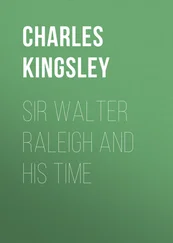Charles King - Campaigning with Crook, and Stories of Army Life
Здесь есть возможность читать онлайн «Charles King - Campaigning with Crook, and Stories of Army Life» — ознакомительный отрывок электронной книги совершенно бесплатно, а после прочтения отрывка купить полную версию. В некоторых случаях можно слушать аудио, скачать через торрент в формате fb2 и присутствует краткое содержание. Жанр: foreign_prose, на английском языке. Описание произведения, (предисловие) а так же отзывы посетителей доступны на портале библиотеки ЛибКат.
- Название:Campaigning with Crook, and Stories of Army Life
- Автор:
- Жанр:
- Год:неизвестен
- ISBN:нет данных
- Рейтинг книги:5 / 5. Голосов: 1
-
Избранное:Добавить в избранное
- Отзывы:
-
Ваша оценка:
- 100
- 1
- 2
- 3
- 4
- 5
Campaigning with Crook, and Stories of Army Life: краткое содержание, описание и аннотация
Предлагаем к чтению аннотацию, описание, краткое содержание или предисловие (зависит от того, что написал сам автор книги «Campaigning with Crook, and Stories of Army Life»). Если вы не нашли необходимую информацию о книге — напишите в комментариях, мы постараемся отыскать её.
Campaigning with Crook, and Stories of Army Life — читать онлайн ознакомительный отрывок
Ниже представлен текст книги, разбитый по страницам. Система сохранения места последней прочитанной страницы, позволяет с удобством читать онлайн бесплатно книгу «Campaigning with Crook, and Stories of Army Life», без необходимости каждый раз заново искать на чём Вы остановились. Поставьте закладку, и сможете в любой момент перейти на страницу, на которой закончили чтение.
Интервал:
Закладка:
Carr opened the ugly brown envelope and took out, not one, but three sheets of despatch paper, closely written, and began to read. Looking around upon the assembled party, I noticed that conversation had ceased and a dozen pair of eyes were eagerly scrutinizing the face of the commanding officer. Anxious hearts were beating among those young wives and mothers, and the sweet girl-faces had paled a little in sympathy with the dread that shone all too plainly in the eyes of those who but so recently had undergone long and painful separation from soldier husbands. The general is a sphinx; he gives no sign. Slowly and carefully he reads the three pages; then goes back and begins over again. At last, slowly, thoughtfully he folds it, replaces the fateful despatch in its envelope, and looks up expectant of question. His officers, restrained by discipline, endeavor to appear unconcerned, and say nothing. The ladies, either from dread of the tidings or awe of him, look volumes, but are silent. Human nature asserts itself, however, and the man and the commander turns to me with, "Well, what did I tell you?" And so we got our orders for the Sioux campaign of 1876.
To the officers, of course, it was an old story. There was not one of our number who had not seen hard campaigning and sharp Indian fighting before. But could we have had our choice, we would have preferred some less abrupt announcement. Hardly a word was spoken as the group broke up and the ladies sought their respective homes, but the bowed heads and hidden faces of many betrayed the force of the blow.
The officers remained with General Carr to receive his instructions. There was no time to lose, and the note of preparation sounded on the spot. General Sheridan's orders directed four companies from Fort Hays to proceed at once to Cheyenne by rail, and there await the coming of the more distant companies – eight in all, to go on this, the first alarm.
Companies "A," "B," "D," and "K" were designated to go; "E" to stay and "take care of the shop." Those to go were commanded by married officers, each of whom had to leave wife and family in garrison. "E" had a bachelor captain, and a lieutenant whose better half was away in the East, so the ladies of the regiment were ready to mob the general for his selection; but there was wisdom in it. In ten minutes the news was all over the post. A wild Celtic "Hurray, fellows, we're going for to join Crook," was heard in the barracks, answered by shouts of approval and delight from every Paddy in the command. Ours is a mixed array of nationalities – Mulligan and Meiswinkel, Crapaud and John Bull, stand shoulder to shoulder with Yanks from every portion of the country. In four regiments only is exclusiveness as to race permitted by law. Only darkies can join their ranks. Otherwise, there is a promiscuous arrangement which, oddly enough, has many a recommendation. They balance one another as it were – the phlegmatic Teuton and the fiery Celt, mercurial Gaul and stolid Anglo-Saxon. Dashed and strongly tinctured with the clear-headed individuality of the American, they make up a company which for personnel is admirably adapted to the wants of our democratic service. The company of the Fifth Cavalry most strongly flavored with Irish element in the ranks was commanded by Captain Emil Adam, an old German soldier, whose broken English on drill was the delight of his men. "The representative Paddy," as he calls himself, Captain Nick Nolan, of the Tenth Cavalry, has an Ethiopian lieutenant (a West-Pointer) and sixty of the very best darkies that ever stole chickens. But wherever you meet them, the first to hurray at the chance of a fight is the Pat, and no matter how gloomy or dismal the campaign, if there be any fun to be extracted from its incidents, he is the man to find it.
And so our Irishmen gave vent to their joy, and with whistling and singing the men stowed away their helmets and full-dress uniforms, their handsome belts and equipments, and lovingly reproduced the old Arizona slouch hats and "thimble belts," and the next evening our Fort Hays command, in two special trains, was speeding westward as fast as the Kansas Pacific could carry us. The snow-capped peaks of the Rockies hove in sight next day, and Denver turned out in full force to see us go through. At evening on the 7th, we were camping on the broad prairie near Cheyenne. Here Major Upham joined us with Company "I." A week after we were off for Laramie. On the 22d, our companies were ordered straight to the north to find the crossing of the broad Indian trail from the Red Cloud and Spotted Tail reservations, by which hundreds of Indians were known to be going to the support of Sitting Bull and Crazy Horse.
We were to hide in the valley of the South Cheyenne, near the base of the Black Hills, and cut off the Indian supplies. Buffalo Bill had joined us, his old comrades of the Sioux war of 1868-69; and though we feared the Indians would be quick to detect our presence, and select others of a dozen routes to the Powder River country, we hoped to be able to nab a few.
On the 24th, we had begun our march at 6 a.m. from the Cardinal's Chair, at the head of the Niobrara, and before noon had descended into the valley of "Old Woman's Fork," of the South Cheyenne. We had with us two half-breed Sioux scouts and an Indian boy, "Little Bat," who had long been employed by the Fort Laramie officers as a reliable guide. Camping at noon along the stream, I was approached by Major Stanton, who had joined our column under instructions from General Sheridan, and informed that he was going to push ahead of the column at once, as the scouts reported recent Indian signs. It was necessary, he said, that he should get to the Cheyenne as quickly as possible, and he wanted me to go as commander of the escort. In half an hour we were in saddle again, Major Stanton with his blunderbuss of a rifle, "Little Bat" in his semi-civilized garb, Lieutenant Keyes with forty men of Company "C," and myself. The general detained me a moment to convey some earnest instructions, and to post me on certain points in Sioux warfare which experience with Apaches was supposed to have dulled, and, with the promise, "I'll follow on your trail to-morrow," waved his hand, and in two minutes we were out of sight down the winding valley.
Three p.m. is early on a long June day. We rode swiftly, steadily, but cautiously northward; the valley widened out to east and west; we made numerous cut-offs among the bends of the stream, crossing low ridges, at each one of which Bat, well to the front, would creep to the top, keenly scrutinize all the country around, and signal "come on." At 5 o'clock he suddenly halted and threw himself from his horse, and I cantered forward to see what was up. We had struck our first trail of the campaign, and the yielding soil was thick with pony tracks. Coming from the east, the direction of the reservation, they led straight down the valley, and we followed. Every now and then other tracks from the east joined those we were on, and though at least four or five days old, they were of interest. Half an hour before sunset, far off among the hills to the northeast, a thin column of smoke shot up into the clear sky. Ten minutes more another rose in the west. They were Sioux signals, and we were discovered. But the country was open all around us; not a tree except the cottonwoods along the narrow stream-bed, no fear of ambuscade, and we must not halt until within sight of the Cheyenne valley; so on we go. Just at twilight, Bat, five hundred yards in front, circles his horse rapidly to the left, and again I join him. It is the recent trail of a war-party of Sioux, crossing the valley, and disappearing among the low hills to the northwest. They number fifty warriors, and those whose tracks we have been following took the same direction – the short cut towards the Big Horn mountains. Our march is very cautious now – advance, flankers, and rear guard of old, tried soldiers, well out; but on we jog through the gathering darkness, and at nine p.m., as we ride over a ridge, Bat points out to me a long, low line of deeper shade, winding six or seven miles away in the moonlight. It is the timber along the Cheyenne, and now we may hunt for water and give our tired horses rest and grass. The valley is broad; the water lies only in scanty pools among the rocks in the stream-bed. There has been no rain for a month, and there is not a blade of grass nearer than the bluffs, a mile away. Our horses drink eagerly, and then in silence we fill our canteens and move off towards the hills. Here I find a basin about two hundred yards in diameter, in which we "half lariat" and hobble our horses; dig holes in the ground, wherein, with sage brush for fuel, we build little fires and boil our coffee, while Keyes and I take a dozen of our men and post them around our bivouac at points commanding every approach. No Indian can reach us unseen through that moonlight. No Indian cares to attack at night, unless he has a "sure thing;" and though from five different points we catch the blaze of signal fires, we defy surprise, and with ready carbine by our side we eat our crisp bacon, sip the welcome tin of steaming coffee, then light our pipes and chat softly in the cool night air. Little we dream that two hundred miles away Custer is making his night ride to death. Our supports are only twenty-five miles away. We dread no attack in such force that we cannot "stand off" until Carr can reach us, and, as I make my rounds among the sentinels to see that all are vigilant, the words of the Light Cavalryman's song are sounding in my ears:
Читать дальшеИнтервал:
Закладка:
Похожие книги на «Campaigning with Crook, and Stories of Army Life»
Представляем Вашему вниманию похожие книги на «Campaigning with Crook, and Stories of Army Life» списком для выбора. Мы отобрали схожую по названию и смыслу литературу в надежде предоставить читателям больше вариантов отыскать новые, интересные, ещё непрочитанные произведения.
Обсуждение, отзывы о книге «Campaigning with Crook, and Stories of Army Life» и просто собственные мнения читателей. Оставьте ваши комментарии, напишите, что Вы думаете о произведении, его смысле или главных героях. Укажите что конкретно понравилось, а что нет, и почему Вы так считаете.












